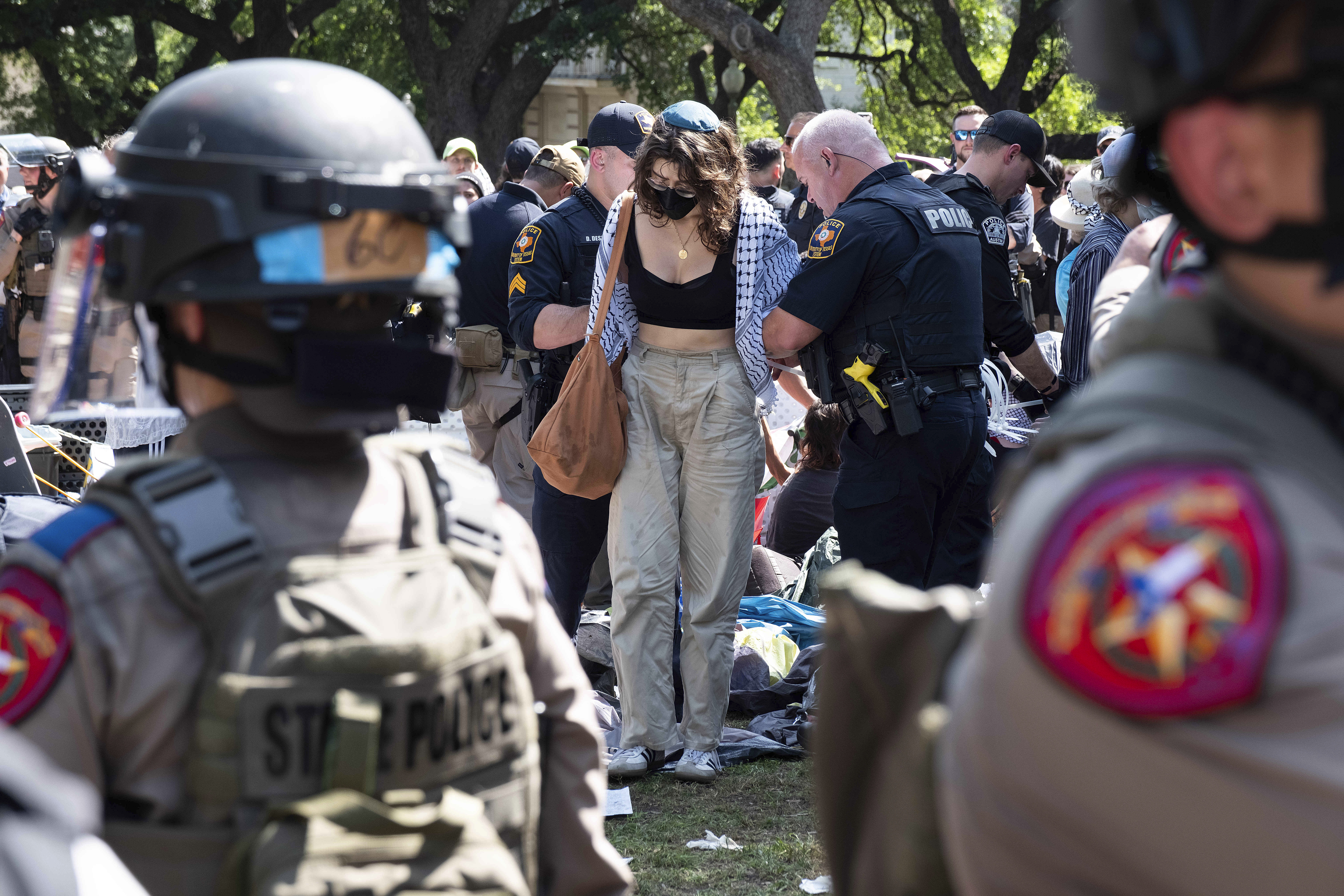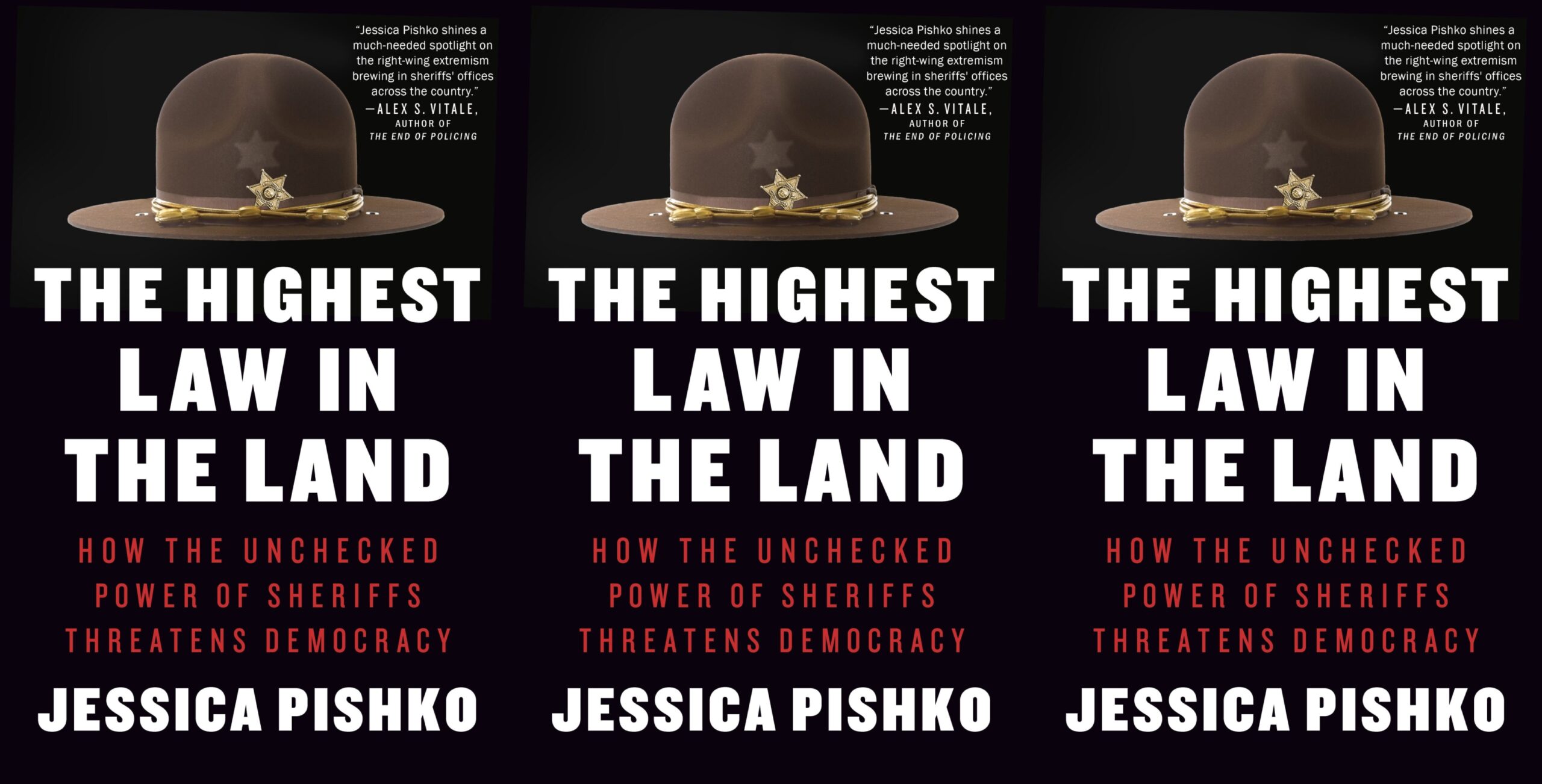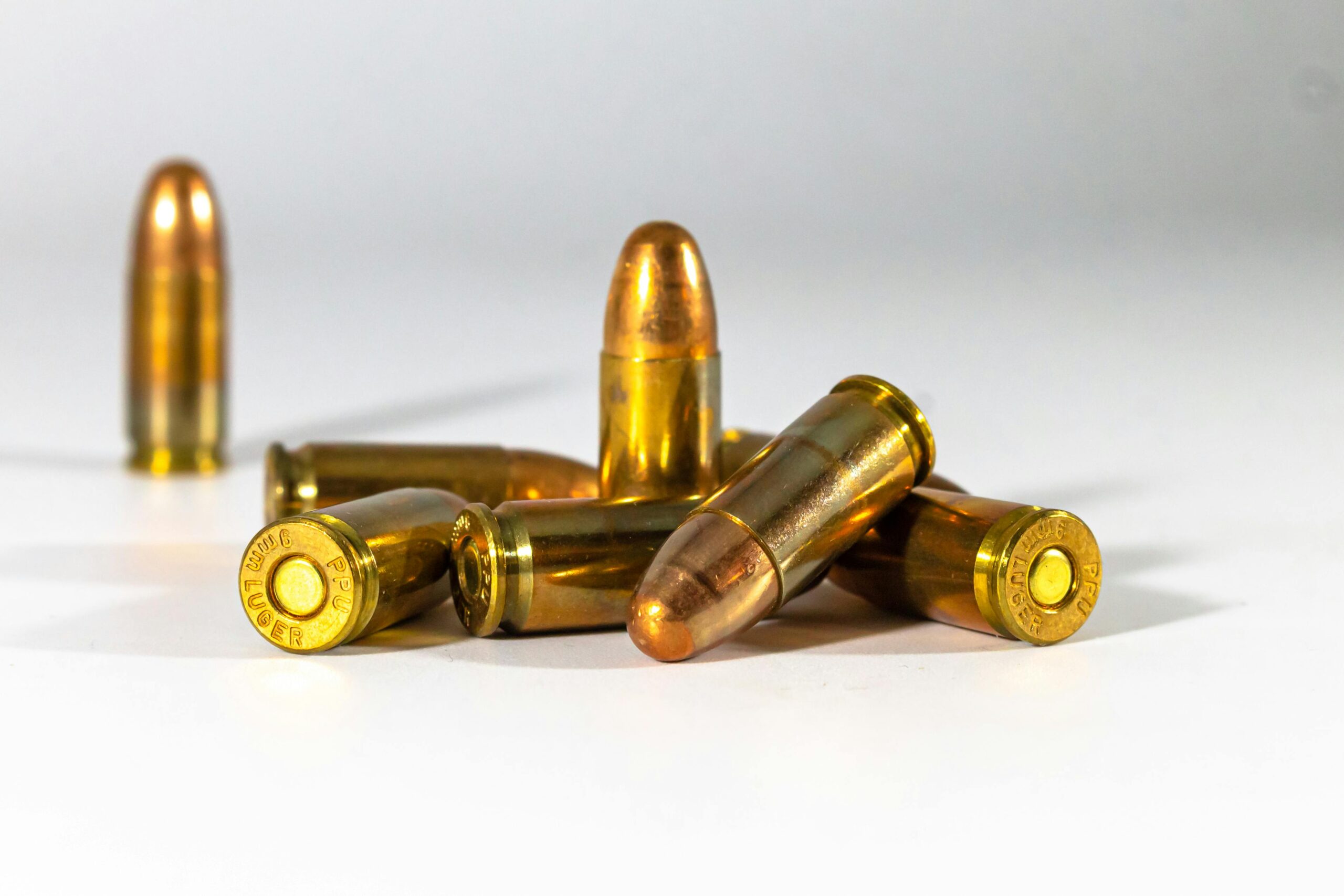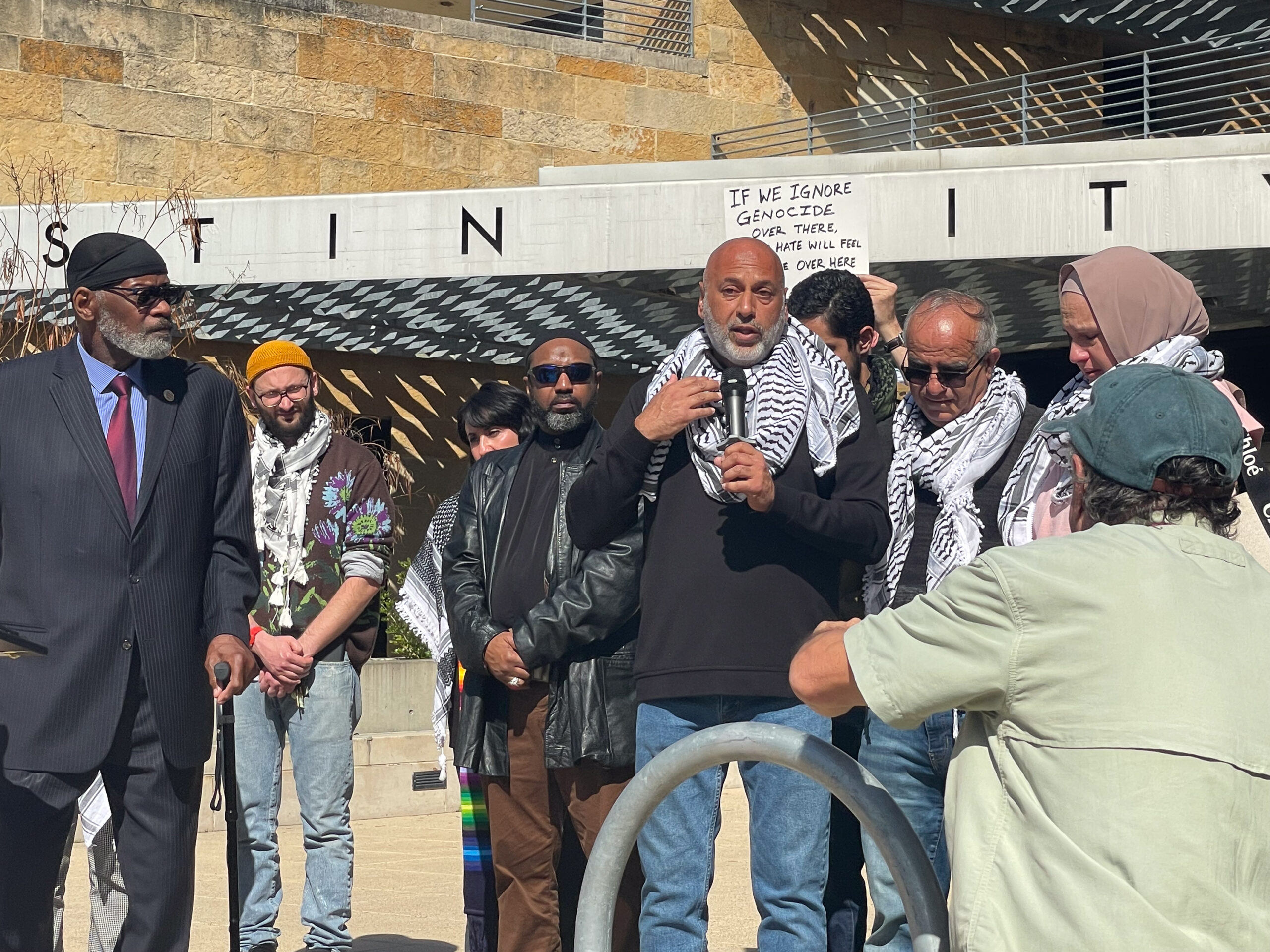
A Lawsuit 30 Years Ago Affirmed Free Speech on Texas College Campuses
The University of Texas’ fixation on protesters “not affiliated with UT” calls to mind when Southwest Texas State University tried to ban an independent newspaper.
In 1989, then-Southwest Texas State University (SWT) sent a warning to the Hays County Guardian: Its student employees would no longer be allowed to hand out copies of the free local newspaper on campus.
The publisher of the paper was something of a firebrand. Two years later, he’d be arrested for a demonstration in favor of marijuana legalization that mostly amounted to him smoking a joint at the San Marcos Police Department headquarters. But the administrators at SWT—now Texas State University—had found a way to launder their problems with the Guardian through hyper-specific regulations about how commercial publications could be distributed on campus. Distribution of free newspapers containing advertisements was banned on campus with three exceptions, all of which were onerous for an independent newspaper with a small budget.
So the Guardian sued several SWT administrators and the Texas State University System Board of Regents. After a federal district judge ruled against the paper, finding that SWT’s campus wasn’t a public forum, the Guardian turned to the Fifth Circuit Court of Appeals in New Orleans. Despite its recent hostility to First Amendment claims, the appellate court was receptive to the newspaper’s arguments.
“The undisputed facts show that the outdoor grounds of the campus such as the sidewalks and plazas are designated public fora for the speech of university students,” the appellate judges wrote in a unanimous 1992 opinion. If the university designated a space as a public forum for students, SWT had little leeway to limit speech there even for a publication not affiliated with the university, the judges found.
So it’s puzzling that in his efforts to justify calling in state troopers to chase off-campus protesters during April 24 and April 29 demonstrations against Israel’s invasion of Gaza, which has left more than 34,000 Palestinians dead, University of Texas at Austin President Jay Hartzell has repeatedly invoked an old “outside agitators” trope. On April 24, Hartell released a statement noting some protesters were “not affiliated with UT.” The following day, he wrote in a statement that “notably, 26 of the 55 individuals arrested yesterday had no UT affiliation.” The university repeated similar claims after the later protest too.
The problem with this is that it doesn’t matter whether those exercising free speech on campus are current students or not. As recently as 2019, the Texas Legislature passed a law that makes it clear common outdoor areas at public universities are public forums where speech is protected. UT-Austin’s own policies state: “Students, faculty members, staff members, and Members of the Public have the right to assemble, to speak, and to attempt to attract the attention of others.” And the Fifth Circuit found 30 years ago, in the Guardian case, that public universities have starkly limited authority to restrict not only the type of speech exercised in areas like UT-Austin’s South Lawn—where protesters attempted to gather late last month—but also who speaks there.
“[Abbott]’s there on Twitter, saying he’s having them arrested because of what they’re saying.”
Governor Greg Abbott’s social media activity has only raised more questions about whether the Department of Public Safety (DPS) and other agencies targeted demonstrators not because of criminal behavior but because state officials disagreed with their message. Gleefully retweeting a video of a phalanx of nightstick-wielding, helmeted state troopers bulling through protesters, Abbott gave the distinct impression that, as at SWT in 1989, UT-Austin was grasping for reasons to silence someone whose message officials didn’t like. “These protesters belong in jail,” Abbott wrote. “Antisemitism will not be tolerated in Texas. Period. Students joining in hate-filled, antisemitic protests at any public college or university in Texas should be expelled.”
The governor’s tweet makes it clear he disagrees with what he perceives as the protesters’ message, but he doesn’t identify an actual crime for which they should be arrested. Abbott also seemed to be employing a common rhetorical strategy of conflating criticism of Israel with antisemitism. By most accounts, the UT-Austin protesters, some of whom were Jewish, were peaceful and not employing hateful rhetoric.
College protests may be an unlikely forum for a nuanced conversation about Israel, an ethnostate created in the aftermath of a continent-wide genocide of Jewish people in Europe that’s been shaken profoundly by Hamas’ horrific October 7 attack that killed 1,200 in southern Israel. But it’s unsurprising that many in the United States would feel the need to voice their opposition to Israel’s destruction of Gaza, considering Israel is a close ally receiving more than $3 billion a year in military aid. Student protesters have been calling for their universities to divest from companies they say are responsible for deaths in Gaza, and the April 24 walk-out organized by the Palestine Solidarity Committee was meant to further that demand. It was to be followed by a teach-in on the South Lawn.
It would be foolish to assert no one in the large protest groups held antisemitic views, but even if the demonstrations had been explicitly antisemitic, as Abbott claimed, it wouldn’t have mattered in the eyes of the First Amendment. Abhorrent speech is still protected. That’s presumably why state troopers didn’t burst into the Stephen F. Austin Building to drag away Agriculture Commissioner Sid Miller when he amplified a Facebook post in 2015 calling for an atomic bomb attack on “the Muslim world.”
“There’s a lot of nuance here, but if you’re calling for the arrest of protesters who are simply engaging in First Amendment activities on public space, then you’re exposing yourself as a partisan that agrees on free speech for those you agree with but not those you disagree with,” said Gilbert Martinez, a media law professor at Texas State.
Much like the Hays County Guardian case—which Martinez said “was very much about an administration trying to boot an independent newspaper; they didn’t like the content”—he said the crackdown on campus protesters across the country “seems in my opinion very much tied to the message they’re expressing.”
Previous pro-Palestine demonstrations at UT had been uneventful. But the April 24 protest came after an encampment at Columbia University in New York became a fixation for conservative politicians and commentators.
The April 24 protest was scheduled to begin at 11:40 a.m. according to an Instagram post by organizers. The first arrest happened at noon. About 30 minutes later, police ordered hundreds of demonstrators marching down Speedway to disperse. A standoff ensued before the protesters continued to the South Mall followed by police. At that point, according to the Austin American-Statesman, officers started barrelling into the crowd. Fifty-seven people were arrested, but all the charges were dropped after local judges and Travis County Attorney Delia Garza reviewed the vague and remarkably similar arrest warrant affidavits.
In a statement later that day, Hartzell outlined his reasons for calling in DPS: “The protesters tried to deliver on their stated intent to occupy campus. People not affiliated with UT joined them, and many ignored university officials’ continual pleas for restraint and to immediately disperse.” Similar reasoning was given by the university for another 79 arrests on April 29.
In a May email to the Observer, a UT-Austin spokesman said arrestees’ university affiliation, or lack thereof, was “not fully known until after the initial arrests” and that attempts to meet with the Palestine Solidarity Committee had been rebuffed. “The April 24 event called for actions that violated our Institutional Rules and was part of a national campaign by a non-UT affiliated group,” wrote Brian Davis, the spokesperson, who also shared a letter sent prior to the protesters stating that “Individuals not affiliated with the University and attempting to attend this event will be directed to leave campus.” The Palestine Solidarity Committee did not immediately respond to an emailed request for comment.
Abbott’s office and DPS did not respond to requests for comment.
Public universities have authority to regulate speech in some areas like classrooms, administrative buildings, and sporting arenas, said Martinez, the law professor. But the Guardian case affirmed that “as a public university, they don’t have 100 percent control of every space on campus,” he said.
“When it comes to public space, public sidewalks, when it comes to the lawn area, to greenspace, the university has some authority but not authority to demand people disperse immediately, unless there’s some kind of dire threat to the community or to the public.”
All of this could come into play if those arrested decide to sue Hartzell, university or state police, or Abbott for “retaliatory arrest.” Their case could be helped somewhat because Garza and local judges determined officers didn’t have probable cause, the standard for showing evidence of a crime to justify criminal charges, for the April 24 arrests.
A federal judge could disagree and find that probable cause did exist. In determining whether the university and police actions were justified, a judge would consider whether the protest was at an appropriate time and place, whether it put anyone in danger, and whether it interfered with the university’s operations. If a judge found probable cause, that would all but derail any litigation—unless, that is, the U.S. Supreme Court finds in favor of a Bexar County woman whose lawsuit went before the justices in March.
As the Observer reported this month, a case involving two arrested city councilwomen in the San Antonio enclave of Castle Hills has reached the nation’s highest court. If the plaintiff prevails, the court would open the door for retaliatory arrest lawsuits even when probable cause exists—if the government had an “official retaliatory policy.” The court could also permit a broader range of evidence to be used in such litigation.
Abbott’s tweet, Hartzell’s fixation on nonstudent protesters, and UT’s convoluted rules about protests comprise the type of evidence a lawyer pursuing a retaliatory arrest lawsuit could use to try to convince a judge to let a lawsuit proceed.
“[Abbott]’s there on Twitter, saying he’s having them arrested because of what they’re saying,” Anya Bidwell, the plaintiff’s attorney in the Castle Hills case, told the Observer. “This could be used as evidence that, but for what they’re saying, he wouldn’t be having them arrested.”



